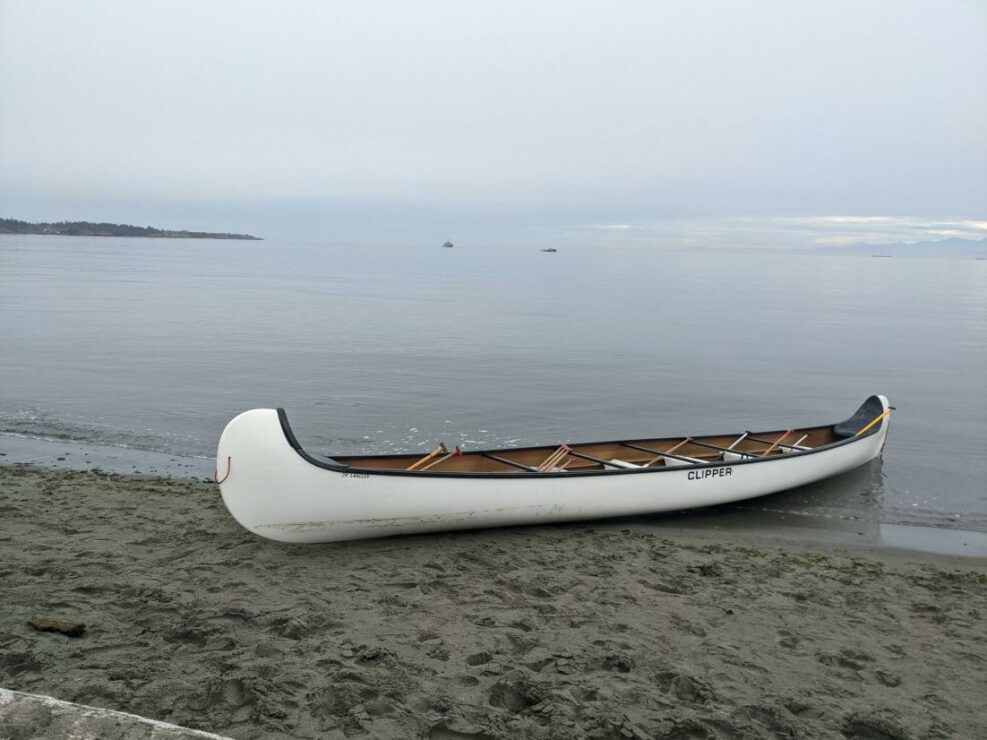
While other classes began on campus, UVic’s Indigenous Governance 510 class began their learning on the water. And while other students filed into rows of desks to prepare for their lectures, the students and instructors from the Indigenous Governance program took their seats on a white racing canoe in the ocean next to the Esquimalt Lagoon, on Sept. 14.
The experience was organized by Dawn Smith, an assistant professor in UVic’s Indigenous Governance program. Smith is Nuu-chah-nulth from Ehattesaht and grew up on W̱SÁNEĆ (Tsawout) territories.
Smith sat at the front of the canoe. Several other instructors from the program were also present in the rows behind her. At the back of the canoe, a Songhees man steered the boat and provided guidance. The canoe experience resembled the ways local Indigenous nations travelled, he said. On their travels, their songs would carry to the shore — allowing anyone on the coast to know who was passing by.
After a short loop next to the Esquimalt Lagoon, the rowing came to a halt and 16 paddles were hoisted towards the sky. The students were guided to place the base of the paddle on the edge of the canoe, at a 90-degree angle from the water. The remaining momentum and the waves pushed the canoe onto the sand as they arrived on the territories of the Songhees Nation.
Smith was the first to step onto the beach and address the Elders. Smith proclaimed their purpose as visitors on these lands and affirmed that they were coming with peaceful intentions. She asked for permission, on behalf of the cohort, to study, live, work, and, most importantly, learn how to be a good visitor. Elders, members of the community, and other invited guests were there to greet them. Elder Skip Dick of the Songhees Nation stepped forward to greet the group and granted them the permission to come onto the shore. No one else moved out of the boat until that permission was established.
This is the protocol that has been followed for centuries but it was the first time in the university’s history that a group of students had done the same. In the past, Elders have issued territory acknowledgements and held ceremonies at the university. But until this event, no group of students had ever left UVic to go onto the lands of a nation and seek the permission of an Elder to learn.
After Dick granted the group in the canoe his permission, they began to offload and join the other Elders and community members gathered on the shore. Walking up to the beach involved stepping through the cold ocean water, but no students or instructors complained about getting wet. This was part of the experience.
On the beach, the group formed a semi-circle and took turns introducing themselves to Dick. Students spoke of their own backgrounds, sharing where they had come from and expressing their gratitude for the opportunity to learn on Songhees territory. It was a powerful moment, as some people had been living on these lands for a long time without the opportunity to do a ceremony like this and ask for permission to live here from an Elder. The respect for the Elders was tangible.
After greetings were exchanged and songs were sung, the group gathered for a lunch provided by Songhees Events and Catering. The joyous and communal atmosphere was a stark contrast to a typical university class, but on the water the class and instructors learned lessons far richer than a lecture could teach.






